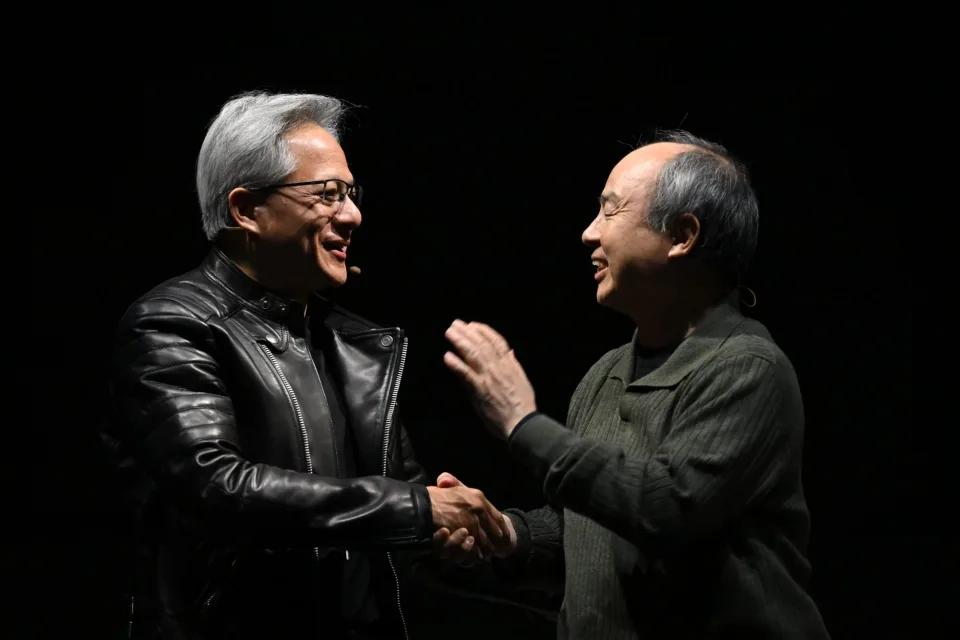
SoftBank Group Corp. will be the first to build a supercomputer with chips using Nvidia Corp.’s new Blackwell design, a demonstration of the Japanese company’s ambitions to catch up on AI.
SoftBank’s telecom unit plans to build Japan’s most powerful AI supercomputer to support a wide range of local services, the two companies said. That computer will be based on Nvidia’s DGX B200 product, which combines computer processors with so-called AI accelerator chips. A follow-up effort will feature Grace Blackwell, a more advanced version.
Shares of SoftBank Corp., Japan’s No. 3 wireless carrier, reversed losses and rose 1% Wednesday. SoftBank Group, which comprises the conglomerate’s investment teams, fell 1.7%.
Nvidia’s chips have become a prized commodity for the world’s biggest tech companies, which use the components to develop and run AI models. The process requires software to be bombarded with data — something accelerator chips are especially adept at handling.
The announcement indicates that SoftBank, which until early 2019 owned 4.9% of Nvidia, has secured a favorable spot in line for the chips. SoftBank founder Masayoshi Son has said he’s preparing to ‘swing for the fences’ in AI bets. On Tuesday, the company reported a return to profitability on rising tech valuations.
Nvidia Chief Executive Officer Jensen Huang had announced the new Blackwell lineup earlier this year, but production snags slowed the rollout. Though Huang has said that supplies will be plentiful once manufacturing ramps up, customers have been eager to get their hands on the first new chips.
Son joined Huang on stage in Tokyo during Nvidia’s AI Summit Wednesday. When reminded of SoftBank’s prior Nvidia stake — which would be worth around $178 billion today — Son cringed and laughed, then wrapped Huang in a bear hug.
Nvidia has been crisscrossing the globe to host such events, promoting what it calls the new industrial revolution. Events in India and now Japan are aimed at broadening the deployment of AI systems to nation-based efforts and lessening Nvidia’s reliance on a few large US customers.
In addition to the new computer and the plan for a second, SoftBank’s telecom unit will also use Nvidia gear to provide AI services over cellular networks. Traditional hardware, based on custom chips that are designed to maximize mobile data traffic, aren’t optimal for new AI services.





























